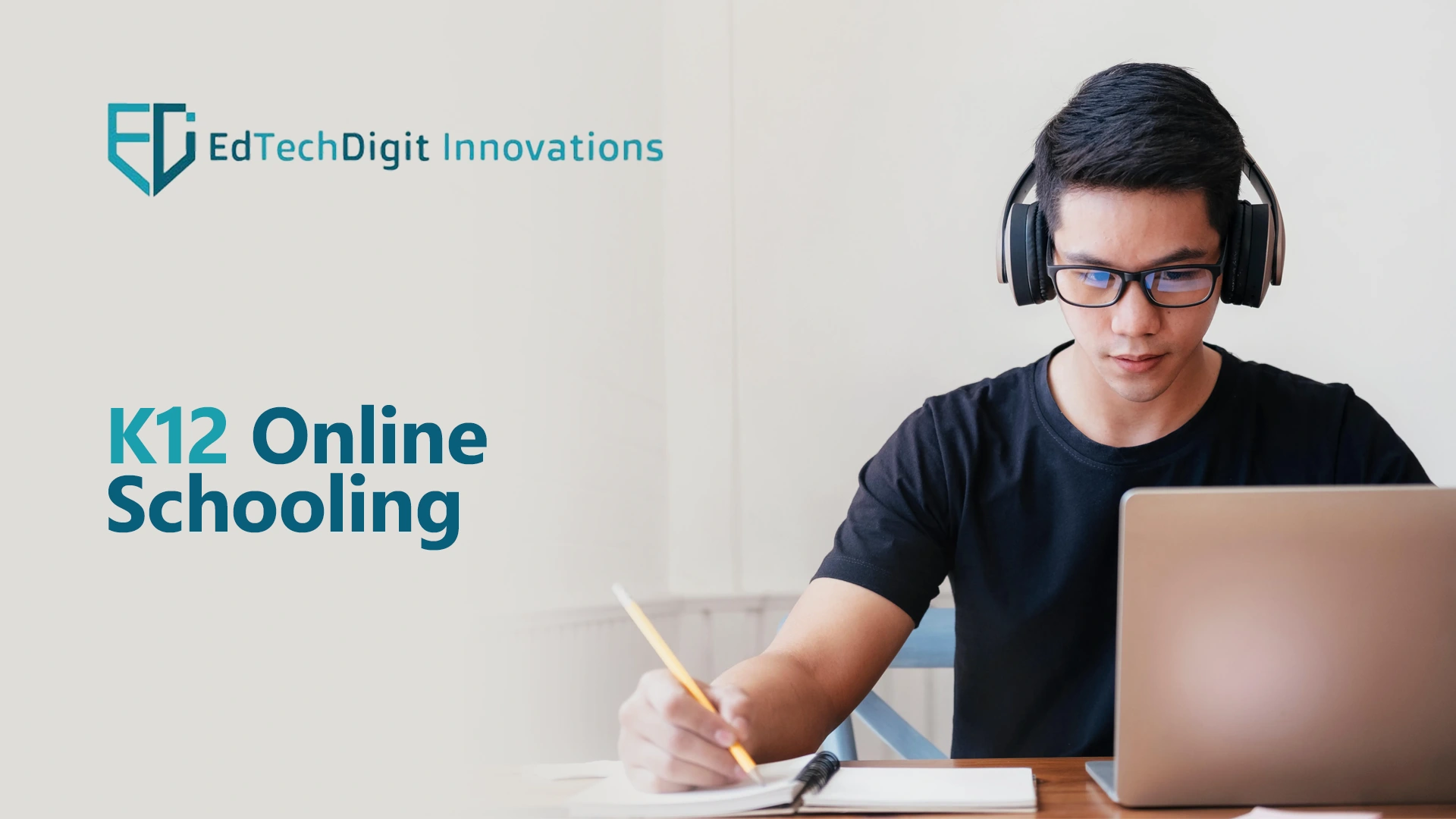No longer restricted to classrooms, K12 education is expanding very rapidly into the online medium, which is redefining children's education. Grand View Research reports that the K-12 education market across the globe was USD 2.50 trillion in 2023, and it will be USD 5.66 trillion in 2030, growing at a 12.5% compounded annual growth rate between 2024-2030. The larger share of this expansion is in the rapid shift towards online schooling, as schools, parents, and children have all embraced online education so that they can enjoy flexibility along with customized educational solutions.
K12 online learning gives access to quality learning and flexibility, but has its list of challenges, including student motivation and engagement. Overall, the ultimate question for parents to pose to themselves remains this one: how can they make learning worthwhile, engaging, productive, and rewarding for their child?"
The article will outline actionable tips to help parents turn the world of digital education into a positive and successful experience for young learners.
-
Understand Your Child’s Learning Style
Every learner has different learning preferences. Some learn best from visual materials, others from the use of audio resources, and some prefer using their hands. Knowing how your child learns best is crucial to making K-12 education a fun.
You may want to watch your child during lessons to learn what keeps them engaged. If they seem to enjoy videos, use more visual and graphic resources. If they responded better when you were reading, build more of those activities into your lesson plans. The more you can customize lessons to complement your child's strengths, the more confident and engaged they will be in their learning process.
-
Take Breaks and Get Physical Activity
Online schooling through K12 can include long periods spent in front of screens, which is exhausting and can lead to attention issues. If your child becomes fatigued or burned out, break up your child's online learning with brief but frequent interruptions in their day.
Avail yourself of breaks and make your student get up and stretch, play outside, or do some light exercise between each class. Those breaks rejuvenate the mind, reduce stress, and increase their attention so that they can come back and study afresh.
-
Make Learning Interactive and Fun
Learning is so much better when it's real and hands-on. Either through interactive functions, learning games, intriguing quizzes, or mini-science experiments, there are various ways in which learning can be all hands-on. What's so wonderful about learning is that even basic work we do on a day-to-day basis, like cooking, gardening, etc., can also be learning experiences. That's practical and fun
-
Set Achievable Goals and Celebrate Progress
Clear, feasible goals increase motivation. Divide the bigger academic assignments into small, manageable goals and monitor progress regularly.
Reward accomplishment, achievement, and progress by giving compliments or treats. Positive reinforcement comes in to boost self-esteem and sustains the desire to learn among students.
-
Foster Social Interaction
One concern with K12 online schooling is the absence of face-to-face socialization. Traditional learning provides easy opportunities for children to peers, but online schooling can still take advantage of ways for children to connect with peers.
Encourage your child to join an online club, or an arts activity that the school organizes, or some type of virtual group project. Many online learning platforms have forums or chat groups to encourage interaction and collaboration among students.
Besides online peer connections, look for local sports, hobby classes, or community group enrolments that help your child develop and practice social skills and build friendships out of the virtual classroom.
-
Be Involved and Stay Positive
Parental involvement has a major impact on a student’s learning as they engage in online learning. You will want to check in often with your child, check in and communicate regularly with teachers, and attend Parent Meetings in a virtual forum.
Your attitude about digital education and learning means a lot. For example, if parents engage with patience, positivity, and support when children encounter challenges, children are more likely to model and reflect the same level of motivation. Likewise, it is important to offer encouragement and celebrate success, even small successes that sustain motivation to learn.
-
Maintain a Consistent Routine
A structured daily routine supports consistency and helps children model good study habits. It is helpful to create a realistic schedule that includes study intervals, meal times, breaks, exercise, and leisure time. While flexibility is also important, a consistent schedule supports discipline and reduces stress. Your child will develop independence over time and will be able to manage their schedule, which is an important life skill.
-
Encourage Participation in Certification Programs
Your child's learning can become more rewarding and goal-oriented if they are enrolled in age-appropriate, interest-based certification programs. Here are a few of the best certification choices to think about:
- Cambridge English Young Learners Certificates: Language Skills
A world-renowned and interactive program for students to develop strong English skills like reading, writing, listening, and speaking for academic and real-world communications.
- K‑12 Certified Artificial Intelligence Prefect (CAIP™) – USAII®
A self-paced and world-renowned program for students (grades 9-10) and the foundations of AI, Machine Learning, Robotics, and Python. It assists young learners in developing critical thinking and problem-solving skills to prepare them for STEM-based futures.
- Cornell Pre-College Online: STEM & Society
An elitist program that allows high school students to learn STEM at a higher education level. It builds subject knowledge and academic competence and prepares learners to be ready for further studies.
- Cambridge English Young Learners Certificates: Language Skills
Conclusion
The crux of good K12 online schooling is a straightforward proposition: learning should invoke curiosity, not drudgery. Parents should use that careful balance of structure with some gentle nudges and even a challenge or two during the process to promote the joy of the journey, not just the outcome. When it is fun and rewarding, success will come.

